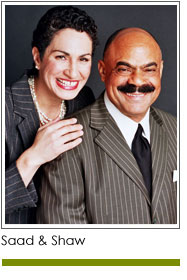 Diversity, equity, and inclusion (DEI) have grown as priorities within business, government, faith organizations, and nonprofits. In many cases this is about creating access and opportunities for those not in the majority. Simplistically, this relates to organizations becoming more representative of those they serve or sell to; it’s about increasing the faces and voices at the table. It is also a moral and ethical issue: who are we, and what are our values if the people who govern and work within our organizations are not diverse?
Diversity, equity, and inclusion (DEI) have grown as priorities within business, government, faith organizations, and nonprofits. In many cases this is about creating access and opportunities for those not in the majority. Simplistically, this relates to organizations becoming more representative of those they serve or sell to; it’s about increasing the faces and voices at the table. It is also a moral and ethical issue: who are we, and what are our values if the people who govern and work within our organizations are not diverse?
Consider this statement from Maverick Carter, CEO of LeBron James’ SpringHill Company, now valued at $725 million, with 141 employees — 50% of whom are women and 67% who are people of color. “When you think about those numbers, what it is, what it represents is the diversity of our team, the empowerment of our team. That’s what we’re about. And that’s what leads to great creativity because if you have people in the room who are not only diverse in race or gender but also diverse in environment, where they came from, what they think, you get discourse. Discourse leads to great ideas,” said Carter.
And consider these reflections from Robin J. Ely and David A. Thomas as shared online via Harvard Business Review. “Companies will not reap benefits from diversity unless they build a culture that insists on equality. Treating differences as a source of knowledge and connection lays the groundwork for such a culture. But as part of that process, firms may have to make financial investments that they won’t recoup, at least in the short run, and more will be required of top leaders, managers, and rank-and-file employees alike.
“Everyone will have to learn how to actively listen to others’ perspectives, have difficult conversations, refrain from blame and judgment, and solicit feedback about how their behaviors and company practices might be impeding the push for a culture that supports learning, equality, and mutual respect. Developing those capacities is no small feat in any context; it is even more challenging for people working across cultural identity differences. But teams that truly embrace the learning-and-effectiveness paradigm will come to understand that homogeneity isn’t better; it’s just easier. They’ll realize, too, that the benefits of diversity arise as much from the collective work of developing those key capacities as from the collective learning they enable.”
Here's our question: is DEI a priority for Black-led organizations? Do we need to embrace diversity? If we do, how do we remain true to historic and cultural visions and the imperative to ensure the aspirations, needs, and concerns of Black people and communities are not subsumed under those of the general population, or any other group of people? Can we demand that other organizations embrace DEI and simultaneously pride ourselves on our Black leadership? What does it mean to solicit money from donors who are not Black, or foundations who were not founded by Black people, while retaining pride in all-Black or predominantly Black leadership? Are we saying, “we want your money but not your input?” What are your thoughts?
Copyright 2021
Mel and Pearl Shaw of Saad&Shaw – Comprehensive Fund Development Services. Video and phone conferencing services always available. Let us help you grow your fundraising. Call us at (901) 522-8727. www.saadandshaw.com.










